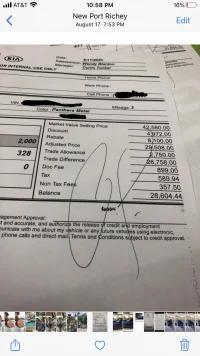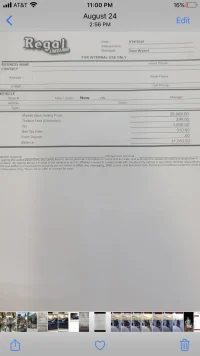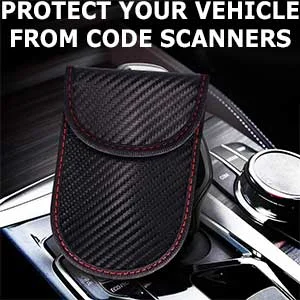Hi Thomas,
I'm too new to send a PM, sorry for the open forum post. I'm local to you in Carroll County and hoping you'd share with me the dealer you worked with and what kind of purchase you made and deal you got.
I've NEVER leased a vehicle, but these Stinger lease buyout conversations make me think I could be doing better than my normal good car purchases. I'm not planning to buy until late this year or early next year, but I'm a weirdo that can do research for months before a car purchase.
For the general group, can you answer this for me? When going with the lease buyout technique, can you remove ALL variables and know what your total cost will be when it's all said and done, or are you left signing the lease not knowing what your buyout and/or final costs are? I've bought a million cars, financed, cash, mix of both and I have gotten fantastic deals. The terminology in Leases is all different, most make no sense to me, and I can't go down an avenue that I don't fully understand. I'd rather just make a traditional purchase and understand all terms of the sale than sign anything I don't understand.
Thanks!
best way to summarize:
Lease Buyout strategy works best only if the lease incentives are greater than the amount of interest you'll pay performing a lease buyout.
If prevalent used cars rates charge you $4,000 in interest over 6 years but the incentives are $6,500 then absolutely lease then buy it out.
However, if your used car rate charges you $4,000 in interest over 6 years and your lease incentive is $3,500 then you'd be better off taking their promotional finance rate.
I know right now 2021's are getting 0% for 66 months on all trims which, is pretty damn good these days. Negotiate $3,000 off of sticker due to the 2022's hitting lots, why not.
Since you're unfamiliar with leasing, heres a cheat sheet for you:
RESIDUAL VALUE = What Kia estimates your leased vehicle will be worth in 2/3/4 years. This is expressed as a percent. I've seen Stingers have a 55% residual value which, is pretty darn good.
MONEY FACTOR = Because legally they can't call it an interest rate but, thats basically what it is. Some people call it a usage charge. They're technically correct but it functions like interest. To convert MONEY FACTOR TO APR: money factor x 2400. As an example: MF 0.00180 x 2400 = 4.32% apr.
CAP COST or CAPITALIZED COST = The amount that is being financed in a lease ( amount you're paying on the lease over 2/3/4 years.)
CAP COST REDUCTION = Down payment and/or incentives
CAP COST usually factors negotiated price the of car and any taxes/fees/finance bullshit you might decide to buy.
LEASE END VALUE or LEV = The Guaranteed amount your vehicle will be worth at the end of lease.
When looking to do a lease buyout here are a few things to keep in mind:
NEVER TELL THE DEALER WHAT YOU'RE DOING.
Its none of their business and they'll try to steer you into a situation where they actually make a profit on these cars.
PAY CLOSE ATTENTION TO HIDDEN FEES.
I've seen dealers try and sneak in "Warranty extensions" and "Exterior coatings" in the CAP COST area. It'll look good to the untrained eye because of the lower payment but, if you look close you'll see it doesn't make sense.
NEVER BUY IT BACK AT THE DEALER
If you have a great relationship with your credit union, take advantage of that. A credit union or your local bank will simply create an auto loan for the car. No dealership "processing charge" or "loan origination charge" or any of the other horseshit.
Another EXCELLENT resource is an Auto Broker. I was an Auto Broker for a while and had 3 times as many financing options as any dealership I had worked for. I would do lease buyouts using credit unions for their stellar rates and make a flat fee from the CU as my fee. Clean and simple.
DM me if you have questions. I know more about dealership crap than I want to from working at dealerships 90% of my career.






